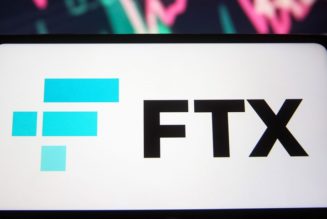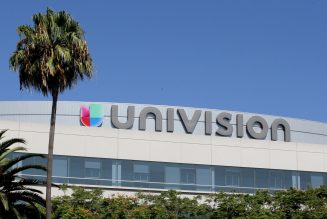
Lost in the middle are those of us who believe that providing financial services to people who live in more modest and minority communities requires both the savvy to understand which applications are truly viable and, perhaps more important, a deep-seated commitment to a given locality that neither behemoth banks nor federal bureaucrats can realistically hope to develop.
The Great Winnowing’s effects have largely been hidden from more prosperous communities — but they’re very real, and often tragic. Consider the saga of ShoreBank, a legendary community development financial institution founded in the early 1970s to serve Chicago’s South Side. For decades, ShoreBank was lauded in the U.S. and abroad as a national icon that helped finance working-class borrowers looking to climb into the middle class. But when the Great Recession hit, its customers were among the first to be laid off, and a number of its loans were among the first to go into default.
ShoreBank itself wasn’t culpable. Poor people and members of Black and minority communities are almost invariably the first to be laid off in a downturn, and the last to be rehired when things turn around. But as the Great Recession took hold, regulators worried that a failure to crack down on certain banks holding too many delinquent loans would create a “moral hazard,” signaling to other institutions that they could be more profligate in their lending — concerns often overcome when larger institutions are at risk. To its great credit, the Federal Deposit Insurance Corporation attempted to save ShoreBank by trying to secure funds from the Troubled Asset Relief Program. But when other voices inside the White House and agencies vetoed that proposal, Washington essentially forced the bank out of business.
Many of us were incensed. At the same time that the government was using TARP funding to save larger financial institutions deemed “systemically important,” regulators were tightening the screws on the very mission-driven lenders who were serving the communities suffering most wretchedly amid a global crisis. What happened next was predictable. Some of ShoreBank’s assets were gobbled up by wealthy investors who subsequently saw them skyrocket through the ensuing economic recovery. The struggling remnants of the ShoreBank franchise were left to stagger forward. And the South Side communities in Chicago that had once depended on ShoreBank were left to beg other lenders — often larger banks headquartered outside their communities — to set up shop in ShoreBank’s now glaring absence.
The arc of this narrative — in which a small lender helps poor and minority communities accrue wealth in good times and is then shunted aside when the economy goes south — has prevailed for decades. Fortunately, Washington can and should put a stop to it. Before we face another recession, Congress and the White House should erect a safety net explicitly designed to buoy lenders caught in the grips of crises that are not of their making. Recent congressional funding boosts in these institutions are a good start. But to end the vicious cycle, Washington must be much more aggressive given the inevitable dips in the economy.
To begin, Congress should establish a Federal Community Banking Reserve that can be deployed to buttress small struggling lenders at the moment that economic conditions deteriorate. The FCBR should be modeled, in spirit, on the Strategic Petroleum Reserve established in the 1970s to protect against the specter of another oil crisis — and in this case would be available during a broader recession. The regulatory community’s continuing preoccupation with avoiding “moral hazard” became something of a shibboleth during the S&L crisis of the 1980s, when greedy lenders made bad decisions at the public’s expense. But minority-owned banks and mission-driven lenders aren’t beacons of avarice so much as they’re victims of circumstance. Particularly because they are lifelines for those they serve, they deserve a reprieve from such an approach.
Second, lenders who underwrite mortgages in marginalized communities should not be forced to sell off assets at the moment the broader market craters. Too often, lenders are compelled to value their assets using a system known among financiers as “mark to market,” an accounting method that equates their balance sheet with what the assets would sell for on any given day. That rule puts minority and community-focused institutions at a drastic disadvantage against bigger institutions that can move assets from one set of investments to another. Goldman Sachs made a vast fortune by purchasing the failing S&L’s assets for pennies on the dollar decades ago. We should not make it easy for Wall Street firms to suddenly snatch temporarily devalued assets that are sure to bounce back in the recovery.
Third, policymakers should provide relief to these smaller lending institutions by remolding the regulatory mandates that put them at a disadvantage. The progressive drumbeat for tougher regulation perversely benefits the big banks vis-à-vis the small banks, as the big ones are best equipped to hire and invest in the additional staff and technology required to comply. Attempts to right the regulatory balance between large banks and smaller ones hasn’t been aggressive enough. Absent a carve out for smaller banks making more marginal loans to Americans with lower incomes, the rules too often force them to reject worthy applications for fear of failing to clear a seemingly endless series of regulatory hoops. If these smaller banks do not get the benefit of being considered “systemically important” they should not be forced to meet this regulatory burden.
The primary challenge for policymakers worried about the Great Winnowing should not simply be to protect the unwitting public from private sector avarice and greed. Washington needs to give greater priority to protecting the underlying institutions born to serve underprivileged communities. When minority-owned and community-centered lenders are forced out of business, the businesses and families they are best-equipped to serve eventually pay the price. To fight both inequality and injustice, Washington should prepare to extend them a real lifeline ahead of the next inevitable recession.
[flexi-common-toolbar] [flexi-form class=”flexi_form_style” title=”Submit to Flexi” name=”my_form” ajax=”true”][flexi-form-tag type=”post_title” class=”fl-input” title=”Title” value=”” required=”true”][flexi-form-tag type=”category” title=”Select category”][flexi-form-tag type=”tag” title=”Insert tag”][flexi-form-tag type=”article” class=”fl-textarea” title=”Description” ][flexi-form-tag type=”file” title=”Select file” required=”true”][flexi-form-tag type=”submit” name=”submit” value=”Submit Now”] [/flexi-form]









